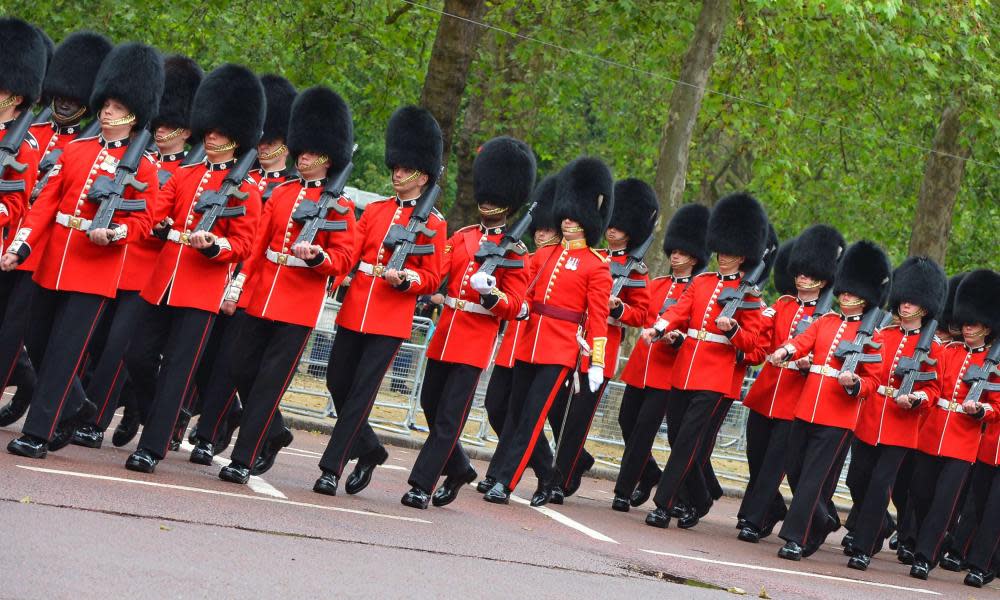Isis follower plotted attacks on key London targets, court hears

A follower of Islamic State who was fascinated by the group’s ideology plotted to launch a terrorist attack on a wide range of targets including the Queen’s Guard, parliament and media organisations, a court has heard.
Umar Haque, 25, from east London, enlisted the help of others at his mosque, where he also tried to groom children with role-play scenarios.
He is accused of plotting terrorist attacks, while Abuthaher Mamun, 19, Muhammad Abid, 27, and Nadeem Patel, 26, are accused of helping Haque.
During the opening of the trial of the four men, the prosecutor, Mark Heywood QC, told the jury that Haque had determined in 2016 and early 2017 to carry out one or more violent attacks with others in the UK.
“His motivation was just that same motivation that drives the banned Islamic State group and at its heart had religious, political motivations,” Heywood told the court.
“Haque had developed an extreme mindset, he was then prepared to contemplate and was capable of justifying acts of extreme violence in pursuit of the cause, the cause he had come wholeheartedly to believe in. He had clearly begun to turn his mind to the commission of violent terrorist acts here in the UK.”
Haque set out to involve people he knew, namely Mamun, Abid and Patel, the court heard.
“Mr Haque was fascinated by the warped and extreme ideology of Islamic State,” Heywood told the jury. “As he later told police after his arrest, he was their loyal follower.”
Audio recordings show Haque had spent “a great deal of time planning for a terrorist attack”, Heywood told the court.
Among his targets, the court heard, were the Queen’s Guard, courts, Transport for London, parliament, Big Ben, the English Defence League or Britain First, foreign embassies and radio stations or other media outlets.
Haque was also fascinated by the terrorist attack on Westminster Bridge in March last year.
He tried to recruit youngsters, aged about 11 to 14, to his cause, the court heard.
“His methods were to expose them to information and video recordings and even to have them enact scenarios of violent action against police and others,” Heywood told the jury.
Haque and Mamun are both accused of preparing acts of terrorism between 25 March and 18 May 2017.
Haque is also accused of researching and planning a terrorist attack, while Mamun allegedly traded in options in order to finance it.
Haque is further charged with preparing terrorist acts by leading exercises in physical training and “role play” with children at the Ripple Road mosque. He is also accused of dissemination of terrorist publications.
Abid is accused of having information about Haque’s plans and Patel is charged with plotting with Haque to possess a firearm or imitation firearm.
The defendants, who all lived in east London, have denied these charges.
Haque has admitted charges of collection of terrorist information and
dissemination of a terrorist publication, while Patel has admitted possessing a prohibited weapon.

 Yahoo News
Yahoo News 